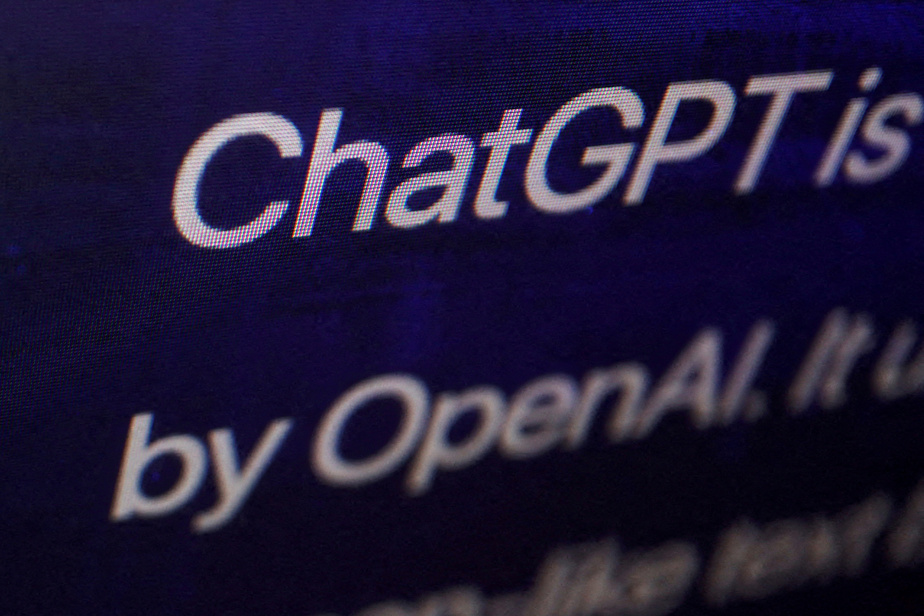(Rome) Is Italy leading the fight against artificial intelligence? It became the first country in the Western world to block ChatGPT on Friday over data usage concerns, two months after banning another program marketed as a “virtual friend”.
In a press release, the Italian Personal Data Protection Authority warns that its decision has “immediate effect” and accuses the chatbot of not respecting European regulations and of not verifying the age of minor users.
This decision will result in “the temporary limitation of the processing of Italian user data vis-à-vis OpenAI”, the company behind the application, according to the document.
ChatGPT appeared in November and was quickly taken over by users impressed with its ability to clearly answer difficult questions, write sonnets or write computer code. Funded by the computer giant Microsoft, which has added it to several of its services, it is sometimes presented as a potential competitor to the Google search engine.
“No complaint” in France
The Italian institution points out that ChatGPT “suffered on March 20 a loss of data concerning user conversations and information relating to the payment of subscribers to the paid service”.
After initial reports, OpenAI briefly discontinued service, then acknowledged a bug in a now-resolved third-party tool that affected 1.2% of its subscribers and an indefinite number of free users.
The authority also criticizes him for “the absence of an information note for users, whose data is collected by OpenAI, but above all the absence of a legal basis justifying the collection and mass storage of personal data, for the purpose of “training” the algorithms running the platform”.
Furthermore, while the robot is intended for people over the age of 13, it “emphasizes that the absence of any filter to verify the age of users exposes minors to completely non-compliant responses by relative to their level of development.
The Cnil, the French policeman for personal data, “has not received a complaint and has no similar procedure in progress”, she indicated in a reaction to AFP.
However, she has approached her Italian counterpart “in order to discuss the findings that have been made” and aims to “clarify the legal framework in the coming months”.
Misinformation and Malware
The Italian institution had blocked at the beginning of February for similar reasons the Replika application, which offers to chat with a tailor-made avatar. Some users had complained of receiving too daring messages and images, close to sexual harassment.
This time again, the Authority asks OpenAI to “communicate within 20 days the measures taken” to remedy this situation, “under pain of a penalty of up to 20 million euros (29 million Canadian dollars ) or up to 4% of annual worldwide turnover”, the maximum provided for by the European Regulation on personal data (GDPR).
Questioned by AFP, a spokesperson for the company assured that ChatGPT was “disabled for users in Italy” in order to comply with the Authority’s decision, ensuring “to be concerned about data protection, we believe we are compliant with GDPR and GDPR laws.”
“We are actively working to reduce personal data in our AI training. We believe that regulation of AI is necessary and hope to work in this direction with the Authority,” added the spokesperson.
This case shows that the GDPR, which has already resulted in billions of dollars in fines for tech giants, could also become the enemy of new content-generating AI.
AI also feeds much deeper fears than the mere exploitation of personal data and the European Union is currently preparing a draft regulation which could be finalized by early 2024, for application a few years later.
Europol warned on Monday that criminals were ready to take advantage of artificial intelligence to commit fraud and other cybercrimes.
ChatGPT was also blocked soon after its release in several schools or universities around the world, after fears of cheating in exams, and companies advised their employees not to use the application.
On Wednesday, billionaire Elon Musk — one of the founders of OpenAI, whose board he later quit — and hundreds of global experts called for a six-month hiatus from research into AIs more powerful than GPT-4. , the latest version of the software on which ChatGPT is based, launched in mid-March, citing “major risks for humanity”.
